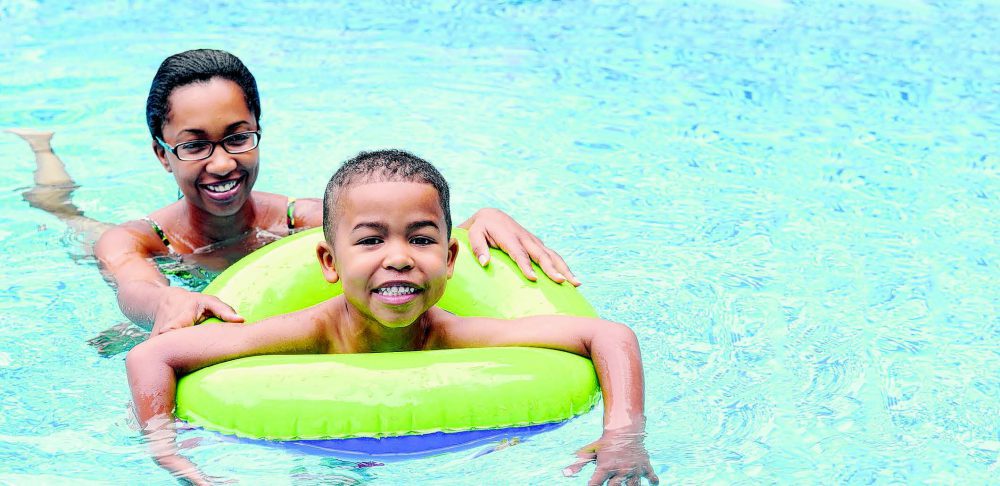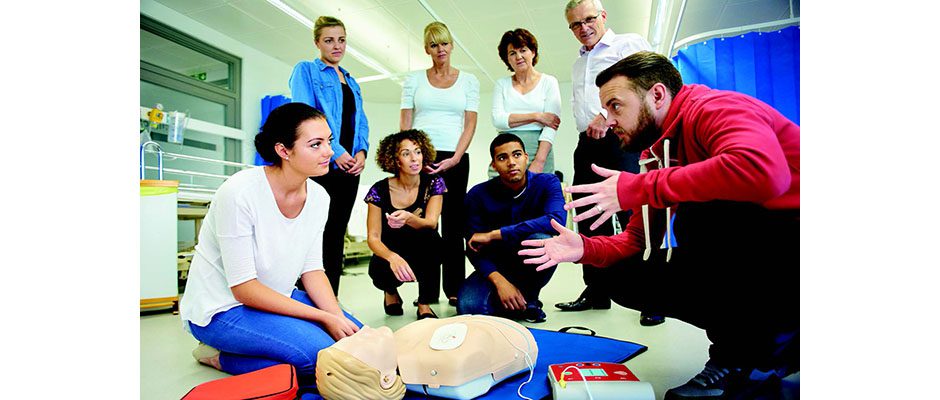
[This article was written by Mark Osborn, M.D., Chief of Pediatrics for St. Peter’s Hospital, and a provider with St. Peter’s Health Center for Children.]
Over the past few weeks, many town and state pools, as well as local and state park beaches, have begun to reopen. But they have done so with density reduction measures in place to enforce social distancing during the current COVID-19 epidemic.
The Centers for Disease Control and Prevention (CDC) recently noted there is no evidence COVID is spread among humans through the use of recreational waters, and the proper operation and disinfection of pools should kill the virus. In fact, parents looking to take their children swimming should be more concerned about the danger of drowning than of contracting COVID.
Every day, about 10 people die from unintentional drowning, according to the CDC, and half of those individuals are children aged 14 or younger. And for every child who dies from drowning, another five receive emergency department care for nonfatal submersion injuries.
Drowning happens quickly and quietly. So, parents: When your kids are on, in or near the water, you’re on full time duty. No one wants an enjoyable day at the pool or the beach to end in tragedy.
To make sure the kids have a safe and happy summer, follow these tips:
- If you own a pool, have it surrounded by the appropriate fence and secure when not being used. Families who use backyard wading pools should turn them upside down when they’re done playing for the day.
- Always have designated adults supervising kids in the water. For small kids, this means being within arm’s reach at all times.
- Don’t read, talk on the phone or do anything that distracts from your lifeguard responsibilities. Stay sober. Have a phone handy.
- Have everyone in the family take swimming lessons. The American Academy of Pediatrics advises that parents use the age of three as a general guideline for the age to begin swimming lessons. Those old enough should learn cardiopulmonary resuscitation (CPR).
- Don’t use toys or flotation devices as a substitute for supervision or life jackets.
- If you go to a public pool or beach, make sure it’s in a supervised, marked area with a lifeguard present. Keep an eye on the weather.
Families who enjoy kayaking, canoeing or boating are also reminded children under 12 years of age are required by NYS law to wear a personal flotation device (PDF) while on recreational watercraft less than 21 feet in length.
Finally, don’t forget the sunscreen! It should be applied 15-30 minutes prior to being out, as well as every two hours while playing outside.
St. Peter’s Health Center for Children, 1092 Madison Avenue in Albany, offers a complete range of services for children from newborns to age 18. Services include well-child routine care, sick-child exams, school and camp physicals, sports physicals, immunizations, health maintenance and education, and access to other hospital services and referrals to specialists. Call 518-525-2445 for more information or an appointment.





